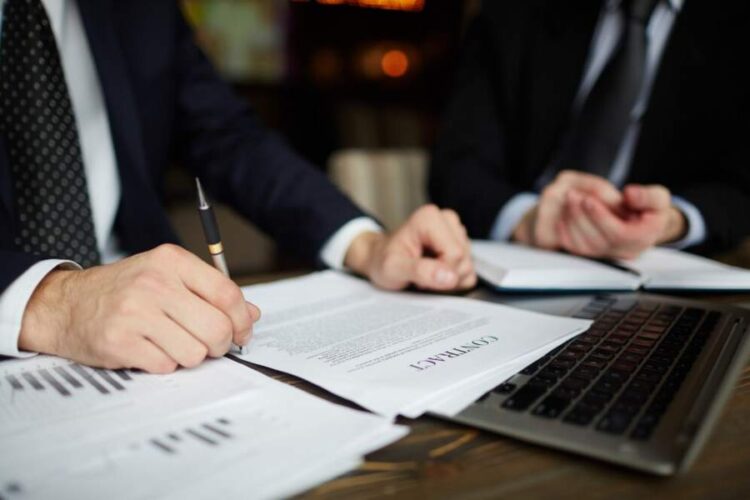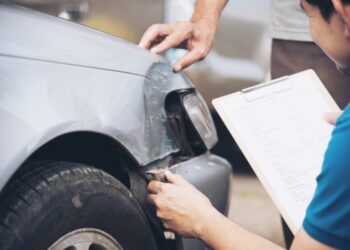Meeting a car accident lawyer can feel overwhelming after the trauma of a crash. In Tacoma, Washington, this preparation is particularly important given the city’s unique traffic challenges. With Interstate 5 running through the heart of the city and over 500 car accidents reported annually in Pierce County, Tacoma residents face significant risks on the road. The city’s proximity to major ports and industrial areas also means heavy commercial vehicle traffic, contributing to the complexity of many accident cases.
Preparing for this meeting is crucial to ensure a smooth process and maximize your chances of fair compensation. Knowing what to bring can help make the consultation more effective and productive. Consulting with a Tacoma car accident lawyer early in the process can help protect your rights and ensure you don’t miss critical deadlines under Washington State’s three-year statute of limitations for personal injury claims. This guide offers insights into the essential items and information one should gather before meeting with a legal professional.
Personal Information and the Means to Contact
First, having personal identification is vital. A driver’s license or any government-issued ID will suffice. This helps verify identity and details for any necessary documentation. Additionally, having current contact information ensures the lawyer can reach out if needed. Consider including an email address and phone number for easier communication, as well as an alternative contact person in case you’re difficult to reach during your recovery period.
Accident Details
After gathering your personal information, you should collect all relevant details about your accident. This includes the date, location, and exact time of the incident. Washington State law requires drivers to have a valid driver’s license and proper insurance coverage, so documentation of the other driver’s compliance with these requirements is also important. It can be helpful to provide a detailed description of what happened before, during, and after the collision. Make written notes to ensure you don’t forget key details. This helps the attorney understand the full context of your case and identify potential liability issues specific to Washington State traffic laws.
Police Reports
Police reports serve as an official account of the incident. They often include witness statements, diagrams, and sometimes the officer’s opinion on who may be at fault. Bringing a copy of this report can provide the lawyer with critical information and help build a stronger case. In Tacoma, you can typically obtain accident reports from the Tacoma Police Department or through the Washington State Patrol’s online portal if the accident occurred on a state highway.
Insurance Information
Another fundamental component is insurance information. Bring policy documents for your vehicle insurance, including details about coverage limits and any communications with insurance companies regarding the accident. Washington is a “fault” state for car insurance claims, meaning the at-fault driver’s insurance is primarily responsible for covering damages. This information allows the attorney to evaluate coverage and prepare for potential claims against all applicable insurance policies, including your own personal injury protection coverage if available.
Medical Records and Bills
Medical records and bills are extremely important if you sustained injuries from the accident. According to the National Highway Traffic Safety Administration, proper documentation of injuries is crucial for establishing damages in accident claims. These documents detail the location, nature, and severity of injuries suffered. Provide doctors’ notes, hospital records, diagnostic test results, and information about any rehabilitation treatments. Collect receipts for all medical expenses, as your lawyer will need these when assembling and calculating your claim for damages and negotiating with insurance companies for fair compensation.
Photographic Evidence
Evidence in the form of photographs can significantly strengthen your case. Include photographs of the accident scene, vehicle damage, traffic signs or signals, road conditions, and any visible injuries. These visual records are invaluable for substantiating claims and presenting a complete picture of the incident. Take clear, detailed pictures from multiple angles whenever possible, as these can serve as key evidence during settlement negotiations or at trial.
Witness Information
If there were witnesses to the accident, their information could be valuable to your case. Collect names, phone numbers, addresses, and any statements they provided. Witnesses can offer independent perspectives that might strengthen your position and counteract the other party’s version of events. Sharing this information with your lawyer enables them to conduct follow-up interviews and potentially secure testimony that supports your claim.
Proof of Work and Income
Injuries from an accident can impact your ability to work. Providing employment and income documentation is essential for calculating lost wages and diminished earning capacity claims. Include recent pay stubs, employment contracts, tax returns, and any correspondence from employers regarding work absences related to your injuries. This information helps the lawyer understand financial losses directly attributable to the accident, ensuring you seek appropriate compensation for both current and future income impacts.
Repair Estimates and Vehicle Information
Bring estimates for vehicle repairs or replacement if your car was damaged. These documents offer insight into property damage costs and can indicate the severity of the collision. Include the make, model, year, and pre-accident value of your vehicle, along with any receipts for repairs already completed or for rental cars needed while your vehicle was unusable. This comprehensive information helps your attorney calculate the full extent of property damage claims.
Questions and Concerns
Last but not least, prepare a list of questions or concerns you want to address during the consultation. The meeting with a lawyer should be informative and reassuring, addressing all your uncertainties about the legal process. Taking notes during the discussion ensures you capture important details and advice. This proactive approach forms the foundation for an effective attorney-client relationship and helps you make informed decisions about your case going forward.
Conclusion
Proper preparation helps your lawyer build a strong case and improves your chances of fair compensation. Bring essential documents – ID, accident details, medical records, and insurance info- to make the most of your consultation. With the right materials and legal guidance, you can focus on recovery with confidence.










